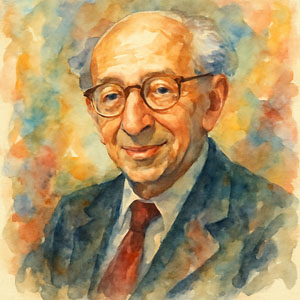— Aaron Copland
 Aaron Copland (1900–1990), the “Dean of American Composers,” was born on this day in Brooklyn, New York, the youngest of five children of Russian‑Jewish immigrants. His music — from ballet to film scores — helped shape American sound for more than forty years.
Aaron Copland (1900–1990), the “Dean of American Composers,” was born on this day in Brooklyn, New York, the youngest of five children of Russian‑Jewish immigrants. His music — from ballet to film scores — helped shape American sound for more than forty years.
“If you want to understand music better, you can do nothing more important than listen to it,” he said. In 1921, Copland left for Paris to study with the renowned teacher Nadia Boulanger.
He soon found his voice in works that drew on folk color and fresh rhythm. El Salón México (1935) celebrated the spirit of Mexico; his score for the films Of Mice and Men (1939) and Our Town (1940) brought lyric clarity to the screen.
Copland wrote Agnes de Mille’s Rodeo (1942), then won the Pulitzer Prize for Martha Graham’s Appalachian Spring (1944), a joyous portrait of 19th‑century American life.
Always curious, he believed better music could elevate every medium. “The cultural level of music is certain to be raised if better music is written for films,” he explained — a conviction shaped by his admiration for Igor Stravinsky.
 Invite inspiration — every day. 🎶
Invite inspiration — every day. 🎶
